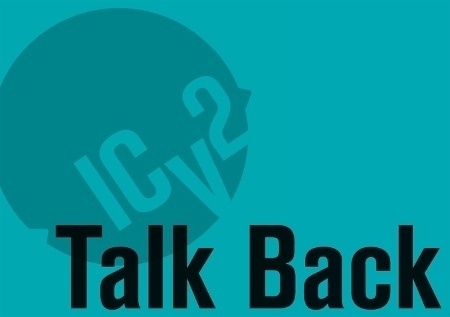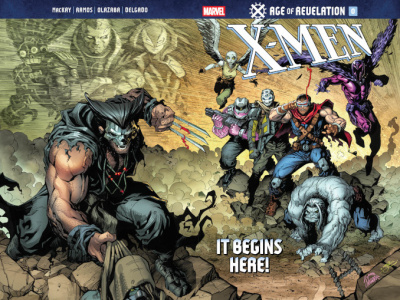Daniel McAbee of The Tangled Web in Spartanburg, South Carolina writes in and presents a case against variant covers.
Variant covers are killing the new comics industry! That sounds pretty bold but I want to put out a retailer’s perspective for both publishers and readers alike to ground my assertion.
I have been a full-time brick and mortar Comic and Game Retailer for 21 years. I’m going to make some statements that are not coming from a place of anger or resentment, but they are nonetheless going to seem negative and harsh. These are my opinions formed from years of retail experience and they may not reflect the opinion of all other retailers.
Let’s start with some background information for all the comic readers and fans: Independent Comic Retailers order comics and most other product in their stores on a non-returnable basis. If we order too many, we lose. If we order too few, we lose in a different way. When a series has been going for a while, we get the opportunity to see how previous issues have sold and can zero in on the "right" number needed. When a new series starts or when an existing series restarts, that "right" number is hard to guess. Retailers typically order product 1-2 months before the product releases and for many publishers, they can adjust those numbers until about 3 weeks before the books ship. In many cases, retailers can't see some cover images before the cutoff date for their orders. That is the simplest explanation that I can offer of a very complicated ordering issue.
There are loads of different types of variants out there and I am going to assert that NONE of these help comic retailers and by proxy, the direct comics market.
Let’s look a few different types of variants:
Open order Variants. Open order variants are exactly what they sound like - you can order whatever you like of whichever cover you like. Publishers sometimes offer between 2 to 4 covers like this. Remember that "right" number I mentioned before? Now we just made that number harder to guess, because typically we can’t see the cover art until very near the release date… and sometimes we see it for the first time when we open up the shipment boxes. Very few customers will collect multiple covers (at least in my area) so now we have increased the retailers risk by adding another line item for them to "guess" at. Publishers have stated that orders increase slightly for books when they add an extra cover to the catalog. I have no doubt that that statement is true, but I don’t believe that translates to more retail sales. I routinely have customers tell me, "I swapped covers on that one" every Wednesday at checkout. That isn’t an extra sale, it’s just another copy sitting on the shelf.
Qualifier Variants. Basically, these are "Retailers may order 1 copy for every X copies that they order." These types of variants can be a little less troublesome for retailers because we can simply choose to ignore them, unless we have customers who are asking for them. You see, publishers release cover images on the internet and when readers see them, they sometimes see and want that specific cover and in many cases, do not understand that it is a variant cover. Here is where the trouble starts. Let’s say that Joe W. comes in and says, "I want this cover for Comic X" and he shows you the cover on his phone. You look up that cover and it says, "Retailers may order 1 for every 100 copies that they order." You’ve also received four other calls/e-mails asking for the same cover. Your normal order number for that title is 38. What do you do? You see, you are now the retailer that is going to disappoint several customers. You may even lose a customer if you don’t get the opportunity to explain the situation and educate everyone who asked for it. No matter what the case, you are forced to do damage control for a situation that you didn’t create. Here is the best part: You can offer to let a customer pay for the extra copies that you need to qualify, but who do you make the offer to? The first guy? That’s all well and good until one of the others who asked for it finds out that you got one for the other guy. Being a retailer sounds fun, doesn’t it?
(I should note that IDW Publishing offers 1-in-X incentive variants for some of their titles that are not as destructive to retailers. In those cases, if you order 10 copies of the regular cover (or covers) then you get a 1:10 variant for free. Order 20 and get 2 free, etc.)
Incentive Variants. These are the worst! I call them Marvel Variants when I’m not cursing over them. They work like this: We can use Spider-Man as an example to keep it quick. "Spider-Man #240 Snowball variant. Order 150% of your ordered quantity of Spider-Man #235 and this variant is order all you want." Now the percentage required changes with the wind and can be as low as 90% of a previous issue but it can be as high as 200%. If your orders are very small, this type of variant isn’t as onerous but it really punishes larger retailers. 200% of 3 copies is only 6 copies but 200% of 60 copies is not. Once again, your customers may have seen the cover and expect to have it. When you don’t have that cover, they may go to another retailer to try and find it. If the retailer takes the plunge and orders the right amount, they still face the prospect of the customer putting back the regular cover and buying the variant instead. No guaranteed extra sale, just extra risk.
Now, there are certainly times when variant covers can make retailers extra money. I’m not trying to say that there is never a silver lining, but those are exceptions to the overall rule. Sometimes, a 1:25 variant can sell for $25-$30 when it first releases. Retailers can mark those up and try to capitalize on the surge in demand to make more money on those issues. That strategy can also backfire on the retailer as the value usually drops over the course of a few weeks and then the customer can feel cheated as their investment is not going to hold its value. When more than one customer wants one of these, you have the problem of choosing who you are going to disappoint. Again, not a win for the retailer when you have unhappy customers.
Now, let’s stir the pot a little. If you are putting out a well-written book with quality art, shouldn’t that be the driving force behind your sales? It will certainly drive monthly sales instead of just single issue bumps. If you have confidence in your product, then you can use a variant as an incentive once in a while when you have that "sweet spot" artist who hits one out of the park. When you use variants as an incentive every month, aren’t you really saying, "Look at the pretty cover, what’s on the inside doesn’t really matter!"? I can tell you that is how many customers perceive it because I hear them saying it. At the end of the day, shouldn’t the best possible cover be the regular cover? The way I have chosen to handle these situations at my store is to try and communicate as much as possible with my customers about variants and how they work, and ultimately, stress content over covers. Customers who are happy with a book that they are reading receive some value out of their enjoyment in the same way as they do when going to the movies.
I have been saying for many years that if Marvel and DC each put out only 20 quality titles each month, the industry as a whole would be healthier and all parties involved would make more money. I don’t have any customers that I am aware of who aren’t being forced to choose which titles they can afford to purchase each week. The comic market is a pie and when you slice that pie into more and more pieces, everyone gets less and fewer people are satisfied.
The opinions expressed in this Talk Back are solely those of the writer, and do not necessarily reflect the views of the editorial staff of ICv2.com.

'The Case Against Variant Covers'
Posted by ICv2 on November 28, 2017 @ 3:12 am CT
MORE COMICS
From Tiny Onion, Dynamite, Image, IDW
July 18, 2025
There are four Humble Bundle deals running right now, from Tiny Onion, Dynamite, Image, and IDW.
From Marvel Comics
July 18, 2025
Age of Revelation, a new status quo taking place 10 years into the future and arising out of current developments in the X-Men titles, begins in October.
MORE TALK BACK
'How Would You Deal with This?'
April 15, 2024
Ralph DiBernardo of Jetpack Comics shares his frustrations on street release dates being ignored and the lack of consequences.
'We Need More Long-Term Thinking.'
November 30, 2023
In this Talk Back, Allen Berrebbi, Director of Business Development for Big Bang Comics, comments on the current state of the Direct Market and offers a couple of suggestions to help save it.








